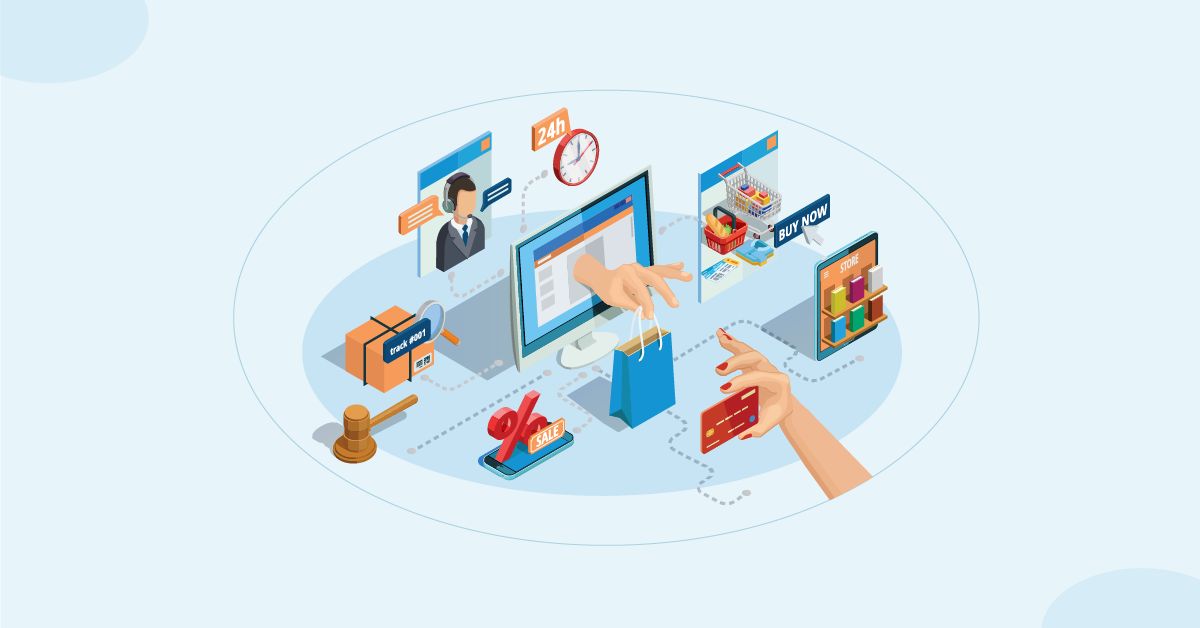
Why A Knowledge Management Software is Crucial for Sustainable Growth of Financial Institutions
Posted On: July 24, 2018
Truly impactful power almost always stems from knowledge. It is the one key differentiator that brings success to people merely by virtue of its being, as knowledge empowers people. Similarly, a Knowledge Management Software plays a crucial role in supercharging growth for banks by focusing on improving the overall brand experience, both for internal and external customers.
Take the example of banking giant ICICI bank. When their operations began to scale, they experienced several operational bottlenecks that affected the banking experience. There was a lot of data flowing in, but it wasn’t easily findable or accessible. Almost always, the issue was hinged on a lack of information being made available to the right person at the right time.
ICICI bank recognized the need for creating a comprehensive data pool that centralized information and its access. They achieved this by creating a powerful Knowledge Management Software that was aptly named Wiseguy.
This system helped them generate highly valuable insights that empowered them to revolutionize their customer experience greatly reducing their churn rate, and improve their cross + up-selling activities.
Right after globalization took a hold of every industry around us, business flourished and so did wealth. Financial institutions the world over have gone digital to keep up with the technological advances, as their customers evolve and embrace the digital way of life.
Banks are handling trillions of terabytes of data on a daily basis to keep pace with the break neck speed of transactions that are happening almost every day.
Knowledge Management in Banking
In a banking scenario, knowledge management would be defined as the process of locating, seizing, storing and sharing of a financial institution’s information resources. These can be anything, ranging from customer information, documents, laws and policies, standard operating procedures, and even implicit information coming from banking officials that stemmed from past learning or experience.
Now, the bank’s role here is to evaluate and find out the key facets of information that can be classified as game changing. Basically, information that can truly empower a customer (both internal and external) to become capable enough of taking the right action after learning about it.
Such information can be anything, ranging from a customer’s past transaction history, or a customer finding out the process to open a demat account online. In both the situations, the concerned parties learn just about enough with data to become empowered, and take an action that results into something.
For a bank, it can be really crucial to structure this knowledge so that they can provide a better customer experience to their users. Banks are no longer focused on simply depositing and handing out cash. They are now into every aspect of a customer’s life with the rise of the Internet and E-Banking.
This has made the customer extremely sensitive to the whole banking experience, and demands instant gratification constantly.
Banks need information at the tip of their fingertips to service their customers better, make better informed decisions at key moments, and also provide the right information to their users at the right time to provide a delightful brand experience. A knowledge Management Software can help shape functions and processes that aid productivity and overall brand experience.
Why Banks require Knowledge Management Software?
Simple, it helps improve overall efficiency of business operations and increase long-term revenue. A Knowledge Management Software helps an organization:
Take Key Decisions Easily Empowered by Data
A good knowledge management software can help you provide the right dataset or value that can simplify your decision making. Whether it is a customer struggling to make the right investment, or the bank trying to allocate interest rates to a massive number of users belonging to different categories, a computerised knowledge management software sorts everything out with data.
Simplifies Day-to-day Operations
Banking on a day-to-day basis invariably involves dealing with a towering amount of data. Millions of customers making transactions that values in the billions and trillions would be a logistical nightmare for a manual system. A knowledge management software lists key information systematically on its database, and makes it available to a user right when it is required in an instant.
Internal Training and Development Purposes
Each bank has a unique system, processes and practices that are taught to facilitate smooth operations. A knowledge management software can absorb all of this data, and present it to users at will which can greatly simplify the whole process of training new employees, joinees and inductees who are trying to learn. It can also serve the same purpose for tertiary bank customers to learn more about new features and reduce assistance on bank employees for trivial tasks.
Provide Better Customer Service
A knowledge management system can help deliver the best possible customer experience by providing enlightenment via information. Knowledge can be used to simplify processes, tasks and enhance the learning that is sometimes required to understand certain banking functions. It can empower the customer-facing teams in a bank by simplifying the onboarding process by a huge margin. A knowledge management software has the potential to revolutionize customer service with the power of information.
Reduce Time Taken to Solve Problems
Banks are using techniques like data mining, data warehousing and data science teams to simplify reams of data that enters a banks servers and systems. It helps provide the right information to a user by providing a searchable interface that is intelligent enough to identify and retrieve targeted information that can help solve a problem in record time. Manual operations on a large scale would take 5X the time taken simply because of the amount of legwork required to identify, retrieve and analyze the right information.
Improve Customer Engagement across Multiple Channels
Such a knowledge management system can be implemented across multiple devices that a typical banking system user might be using. Whether it is the web, mobile or the physical location of the bank itself, a knowledge management software will help synthesize information according to the device and interface and simplify the customers life. Frequently asked questions, interactive assistants and a knowledge base helps store and retrieve important banking related information for users across multiple devices.

There is one such Knowledge Management Software in the market that can handle the custom requirements of a bank. The KnowMax platform is a powerful software that amplifies the availability of banking information to a wide user array across multiple channels.
To stay ahead of competition and regularly deliver delightful experiences, it is important for banks to invest in a good Knowledge Management Software. It provides the sharpness, agility and insightful decision making ability to banks which greatly optimizes operational ability. It has a key impact on the bank’s overall growth as it directly affects the entire brand experience and customer perception.





